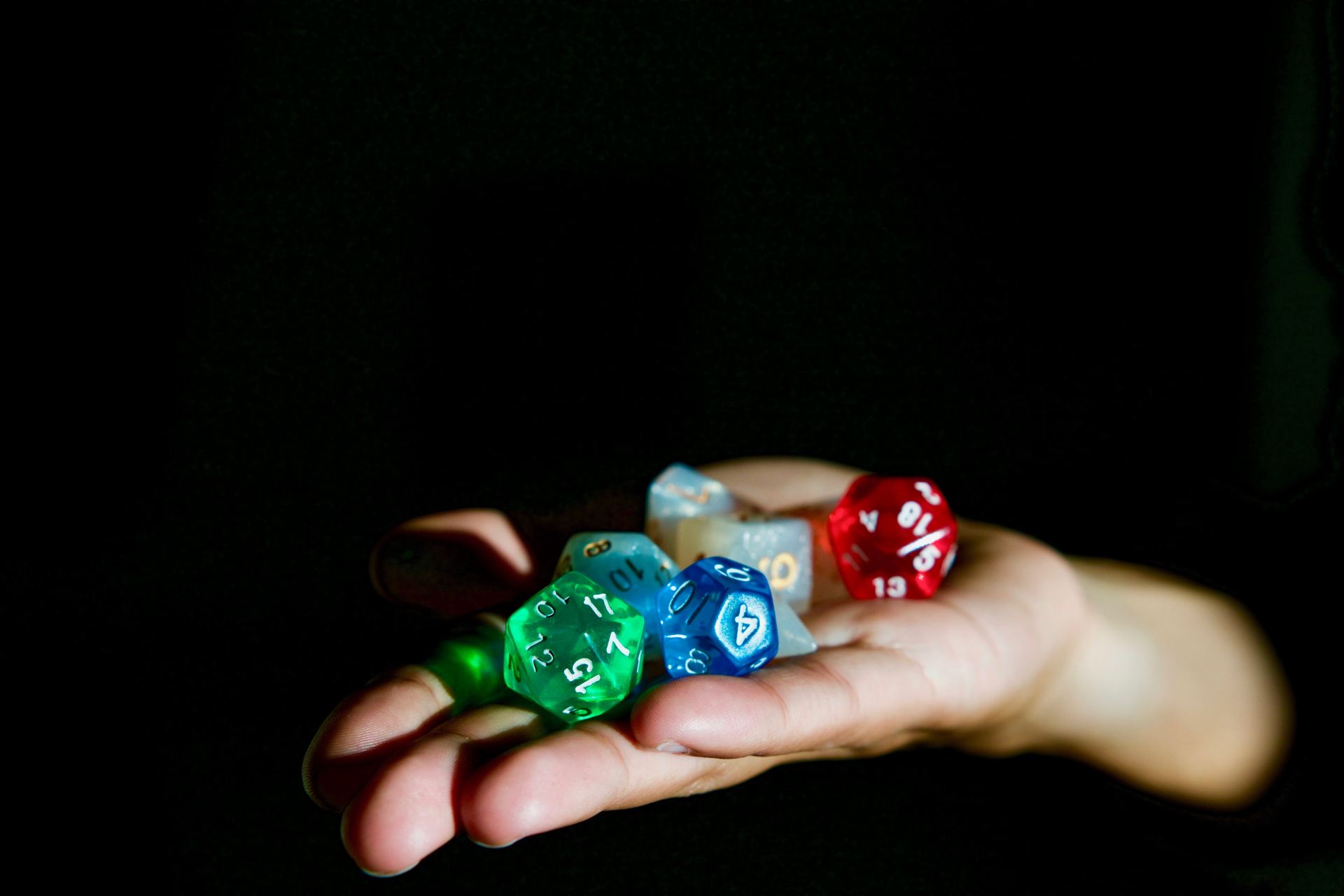If you’re acting as the Dungeon Master for the first time, here are some tips from Ask Reddit.
1. If you’re going to do voices and accents then write down who sounds like what. Your players will remember. You might not.
2. Don’t write a story. Your players are not characters you can inflict your pre written story on. Instead, create characters of your own to populate the world, and give them their own goals to work toward. Create a story cooperatively with your players through the interplay of their agency in the world and the desires of the world you have made.
3. Whenever your players say they want to do something, unless it’s actively breaking the rules, your answer should always be yes. Make them roll for it if applicable, but don’t straight-up deny them.
I know that sounds obvious but it’s a mistake a lot of DMs make without even realizing they’re doing it. They get an image in their head of what the game will be like, and they try to force the game to play out that way at the cost of player agency. That doesn’t make a good experience for anyone.
4. Don’t introduce an NPC unless you are prepared for them to have dialog with your players. Just because you don’t think they are worth talking to, doesn’t mean they think that.
5. Make sure you have strong pronunciation of your characters names, attributes, and that you have back up missions galore ready in case your troupe goes sideways to your story.
6. Fail forward. If players fail an encounter, puzzle, whatever, have a results that give them stakes, but progress the story.
Example: They lose a fight. Instead of a total party kill, have them wake up in a dungeon and have to escape.
Fail a roll to jump a gap? Have them fall, take damage, and find an alternate route in the chasm. Stuff like that.
7. This is not a competitive game. This is something I see a lot and it pisses me off. It’s the players vs the mobs, not DM vs players. You don’t want to murder the PC the worked so hard on. It happens and it sucks, but don’t TRY to. Let the dice do the talking. Your role is to tell the story, not to slaughter your players.
8. Don’t self insert ridiculously powerful PCs for the reason of kicking players’ asses.
9. Don’t give awesome loot fast. If you over gear them early the fun stops. Instead give them novelty and useless loot.
10. Take the time and effort to prep your game. Read over mob stats, skim through your books and make sure you look up things you might need to know or explain. Have your computer ready as your players will always ask you questions that you might not know.
11. Get some background ambiance, like rain or cave noises going. When a fight kicks up, roll in some powerful music. When something upsetting happens, slide it into some dreary piano music. It changes the involvement of the players when the world around them feels like the world you are telling them.
12. Know your players. Some parties are there to take it dead seriously. Some parties want some goofy stuff to happen. The game won’t be fun if you mix those two up.
13. Don’t make the players roll for every little thing they do. If it’s entirely possible for them to do it, they just do it. Only time they should roll for something is if there’s an obvious consequence to them failing that task.
14. Have a mini list of names for races, places (restaurants, inns, etc.) and cities/towns.
15. STUDY BEFOREHAND. A big mistake some DMs make is thinking they can just “read along” with the campaign. No. A lot of the text in a campaign is explaining to YOU how things and situations play out. A lot of the information isn’t meant for the players (answers to puzzles, possible dialogue, plot spoilers for planning purposes, etc). If you don’t study your campaign beforehand then your players are going to spend most of their time watching you read the book.
16. YOU DON’T NEED TO SPEND GIANT AMOUNTS OF MONEY. I’ve seen a lot of groups put off games because they want to invest in elaborate set-pieces. I’ve had just as much fun (if not more) with just a dry erase Chessex mat and some aquarium stones from the dollar store. You don’t need that $50 dragon statue from the comic shop, high-res map tiles on gloss paper, DIY cardboard castles, “dungeon scented” candles, or a miniature for every single enemy you fight.
17. Most importantly: be kind. Everyone is just there to have fun and build a cool story together. Don’t force things on people they don’t like, don’t try to kill them and be flexible. There will be situations where the players have no clue what to do and will absolutely refuse to understand your hints. Instead of trying to force them further into that direction, just change the goal to whatever they are trying instead. Maybe they just don’t get the idea that the magic scroll they found earlier contained a spell that would open the hidden portal to the treasure room and instead they keep on searching the damn floor for a hidden door or switch. By all means, just let there be a hidden trapdoor instead of the portal and let them continue.
18. Use character names instead of player names. It helps keep your player immersed.
19. When describing a place, mention the smell. It adds a whole new level of immersion to the location.
20. Don’t get mad. I know this may sounds silly or someone else already said it but try to not get frustrated/mad with your players.
21. START WITH A ONESHOT! Do not make your first time the start of a campaign that you wrote yourself. A lot of people don’t realize that DMing isn’t for everyone and you do not want to get stuck with a difficult group for an entire campaign. I have hosted oneshots where I felt so emotionally exhausted despite the players loving every moment of it.
DMing takes a lot of work and it’s good to know exactly what your signing up for before you start to host a campaign that you wrote.
22. If an NPC’s survival is vital to the campaign, never have them in the same village as the PCs. Or country. Or continent. Or planet. Or plane of existence.
23. Listen to your players. Make sure that they are being included in the story, the plot, and the game design as the story is about them and their characters interacting with your idea. If they seem not to be interested in the story that you are presenting to them then don’t be afraid to abandon that plot and develop something based around what the players appear interested in. Some of the best stories come from the random threads that they will chase.
24. Relax. Everyone is excited to be there and they aren’t going to care if you aren’t Matt Mercer. No one is expecting you to be except you.
25. Cheat, but only when it serves the narrative. That DM screen exists for a reason: A group of wolves don’t make for good players deaths, so you might just want to pretend that you didn’t see the three 20’s that you just rolled. Similarly, the big bad getting hit by a dominate person on the first round might not make for the conclusion that your campaign deserves.
Also: Your players can’t see your hit point totals. If the encounter is supposed to have narrative impact then you might just want to tell yourself “this fight is over when I say it’s over”. When it comes to boss hit points my own rule of thumb is: Once they breach the hit point total that I set for this encounter then I make sure not to kill anybody, but if the narrative asks for it then the fight will carry on. Most importantly when it comes to cheating: Don’t let your players know that you cheated in the moment. If you must tell them, do so after the session.
26. Realize that not every group wants the same type of experience, and talk to your group about what they want. For example: Some players want to feel like their characters are regularly at risk of dying, where other players want a hand of god protection and a practical guarantee that they will be able to play a single character throughout the entire campaign. Some people want to meme around and sleep with bar wenches whereas other players want an actual grim and gritty experience. Find out whether your party wants to play Lord of the Rings, Game of Thrones, Warhammer or even Adventure Time.
27. Don’t ever take away the agency of your players. You never want to find yourself in a situation where you have to say, “I’m going to need you to kill this NPC/participate in this contest/pick up this glowing rock, or otherwise the campaign can’t continue.” This is a cooperative storytelling experience, and the narrative of your actors comes first. If you need them to do a specific thing then make sure that you have a backup plan in place when they don’t do it.
28. If the group wants to do something that is meant for later and will kill them, you can add something in the game to block them like a guard. If they fight the guard say 300 guards just like him start running up and carry them away. You don’t have to let them die to their own ignorance.
29. Being a DM (at least from my experience) requires quite a lot of improvisation, so try not to freak out when the players do something really random, which forces you to come up with something on the spot. If you aren’t good at that at first though, practice! The more you DM, the better you’ll be at it.
30. YOU are the arbiter of what happens. Don’t let the game get dragged down into parsing the rules. Sometimes you have to make a call and say we can go back and look up the rule later. Use your common sense about what seems fair and balanced. That said, don’t forget the rule of cool: err on the side of allowing something if it’s great cinematics or great for the story. ![]()








